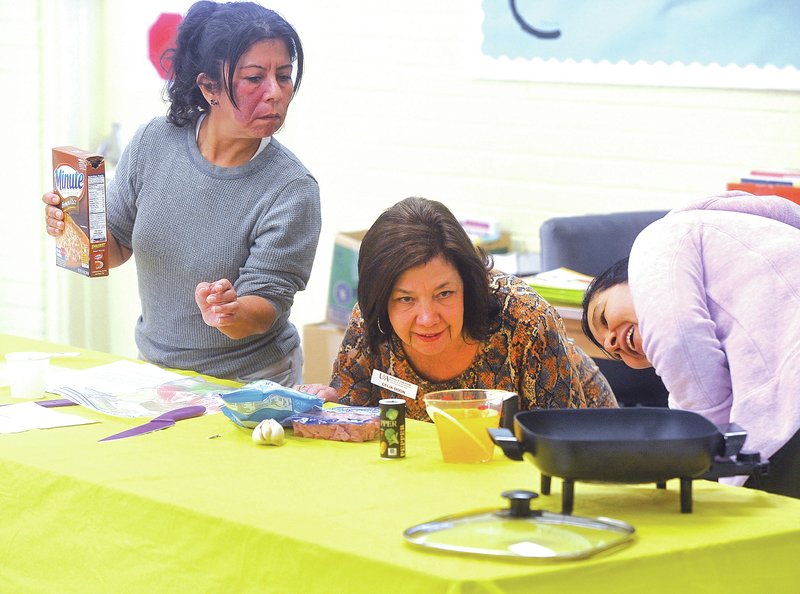FAYETTEVILLE -- Students at the Adult Education Center are getting a bonus class this semester -- learning about nutrition and how to navigate a kitchen and work within a budget.
The Expanded Food and Nutrition Education Program is a six-week federal class intended to help individuals or families with limited resources to gain knowledge and skills to provide nutritional diets and to help them learn more about meal planning, food safety and living healthier, said Celia Boon. She's a county extension agent in family and consumer science in Benton and Washington counties with the University of Arkansas Division of Agriculture.
Web Watch
For more information about Expanded Food and Nutrition Education Program, visit
Source: Staff Report
It's Boon's job to offer the program to groups throughout the two counties, such as students at the center, many of whom are studying English as a second language, citizenship or working toward completion of high school.
The goal is the same for all: Improve learning outcomes because of a healthier lifestyle, said Melissa Terry, a community volunteer and member of the advisory board at the center. Terry proposed to offer the course when board members brainstormed recently about ways to improve attendance among the adult students who have returned to school.
Terry took a similar course, geared to young people, with a group at The Jones Center last summer and found it helpful.
"I just loved it," she said, noting it was interesting to watch the teens gain interest about food preparation as the classes unfolded over a six-week period.
"I feel strongly that nourishment affects learning outcomes," she said. The U.S. Department of Agriculture has stated improved guidelines for meals and snacks in public schools has led to higher test scores and better attendance, according to "Creating a Healthier Next Generation," a blog post on the department's website.
The hourlong class includes discussion, led by Boon, and the preparation of a food dish. At the first class, students volunteered to dice tomatoes, cucumbers, onions and green peppers for a cold pasta salad. They shared the bowl of salad for lunch.
Boon starts with basics like using measuring spoons and cups and moves into a more detailed discussion on preparation or ways to cut fat or how to read nutrition labels or the types of nonperishable food items to have on hand in a well-stocked kitchen.
"I teach about whole grains, about fat and sugar and salt," Boon said. The students recently practiced allocating 65 grams of fat to a day's worth of meals. The 65 grams represent the recommended daily allowance.
David Deggs, director of the center, said the course is one more way to connect with students. "It's an extra layer of education in support of our students' families," he said.
Terry added, "It's connecting the dots of available services with the community."
NW News on 11/12/2014
